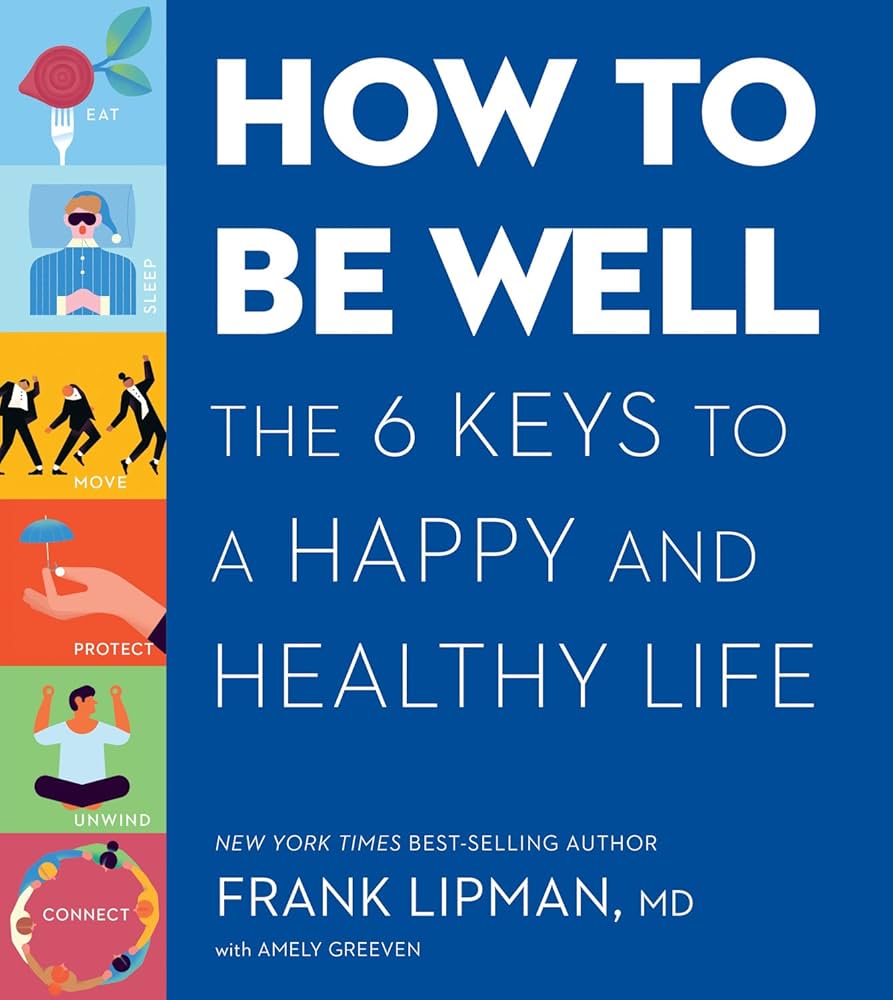Comprehensive wellness strategies necessitate a multi-faceted approach to well-being. This involves considering the interconnectedness of physical, mental, and social factors when addressing an individual’s overall health status. For example, a treatment plan for a patient with heart disease might not only include medication and dietary changes, but also stress management techniques and social support networks.
The implementation of a holistic strategy offers numerous advantages. Individuals experience improved overall health outcomes, enhanced quality of life, and increased longevity. Historically, healthcare has often focused on treating specific ailments in isolation. However, a shift toward integrated methods acknowledges that health is influenced by various determinants, leading to more effective and sustainable interventions.
The following sections will delve into specific components of a complete approach to well-being, examining how they contribute to a state of equilibrium and long-term vitality.
1. Preventative Measures
Preventative measures form a critical pillar in the establishment of a balanced healthcare system. Their systematic implementation aims to reduce the incidence and severity of diseases, thereby minimizing the strain on reactive medical services and promoting population-wide well-being. These proactive strategies are essential for achieving long-term health outcomes.
-
Vaccination Programs
Vaccination programs represent a cornerstone of preventative healthcare. These initiatives provide widespread immunity against infectious diseases, significantly reducing outbreaks and associated morbidity and mortality. The eradication of smallpox and the near-eradication of polio demonstrate the profound impact of widespread vaccination campaigns in enhancing public health and lessening the burden on healthcare infrastructure.
-
Screening Programs
Routine screening programs enable the early detection of various diseases, including cancer, cardiovascular disease, and diabetes. Early identification allows for timely intervention, often leading to more effective treatment and improved prognoses. Mammography for breast cancer screening and colonoscopies for colorectal cancer are prime examples of how proactive screening can mitigate disease progression and improve patient outcomes.
-
Health Education Initiatives
Public health education campaigns play a crucial role in empowering individuals to make informed decisions about their health. These initiatives disseminate knowledge about healthy lifestyles, risk factors for diseases, and the importance of preventative care. By promoting health literacy, individuals are better equipped to adopt behaviors that reduce their risk of developing chronic conditions and maintain overall well-being.
-
Risk Factor Management
Identifying and managing modifiable risk factors, such as smoking, obesity, and hypertension, is a vital component of preventative healthcare. Interventions aimed at reducing these risk factors can significantly decrease the likelihood of developing chronic diseases. Strategies such as smoking cessation programs, weight management initiatives, and blood pressure control measures are essential for promoting long-term health and reducing healthcare costs.
The integration of comprehensive preventative measures into the healthcare framework not only improves individual health outcomes but also contributes to a more sustainable and cost-effective healthcare system. By prioritizing prevention, resources can be allocated more efficiently, ultimately benefiting the entire population. The examples provided highlight the diverse strategies that contribute to a proactive and balanced approach to healthcare.
2. Mental Well-being
Mental well-being forms an integral component of a balanced healthcare strategy. Its absence can lead to a cascade of negative health outcomes, impacting physical health, social functioning, and overall quality of life. For instance, chronic stress and anxiety are known to exacerbate cardiovascular conditions and compromise immune system function. Recognizing and addressing mental health needs is therefore not merely a matter of psychological comfort but a critical investment in overall health and longevity. Neglecting this aspect can significantly undermine the effectiveness of treatments targeting physical ailments, creating a cycle of diminished health and well-being.
The inclusion of mental health services within the broader healthcare system has demonstrable practical significance. Early identification and intervention for mental health conditions can prevent the development of more severe and debilitating illnesses. Integrating mental health screenings into primary care settings, for example, facilitates early detection and referral to specialized care. Furthermore, providing access to mental health professionals, such as therapists and psychiatrists, ensures that individuals receive appropriate treatment and support. Cognitive Behavioral Therapy (CBT), for example, is an evidence-based therapeutic approach effectively used in treating conditions like anxiety, depression, and PTSD, ultimately improving an individual’s coping mechanisms and overall mental resilience. These initiatives exemplify a shift toward a more holistic model of healthcare that acknowledges the inextricable link between mind and body.
Challenges remain in fully integrating mental well-being into mainstream healthcare. Stigma associated with mental illness continues to deter many individuals from seeking help. Furthermore, access to mental health services can be limited by geographical location, financial constraints, and a shortage of qualified professionals. Overcoming these barriers requires a concerted effort to raise awareness, reduce stigma, expand access to care, and train a sufficient workforce. Addressing these systemic challenges is crucial to realizing the full potential of balanced healthcare, where mental and physical health are equally valued and comprehensively addressed.
3. Nutritional Balance
Nutritional balance constitutes a cornerstone of effective healthcare strategies. It directly influences physiological function, disease resistance, and overall well-being. A deficiency or excess of essential nutrients can significantly compromise health status, leading to chronic diseases and impaired immune function. Therefore, the integration of sound nutritional principles is indispensable in achieving a state of complete and balanced healthcare.
-
Macronutrient Optimization
Macronutrients, namely carbohydrates, proteins, and fats, provide the energy and building blocks necessary for sustaining life. Proper balance among these macronutrients is vital. For instance, inadequate protein intake can lead to muscle wasting and impaired immune function, while excessive consumption of saturated fats contributes to cardiovascular disease. Achieving a balanced macronutrient profile, tailored to individual needs and activity levels, is essential for maintaining metabolic health and preventing diet-related diseases. Consider the dietary recommendations for athletes, who require higher protein intake to support muscle repair and growth, highlighting the importance of individualized macronutrient plans.
-
Micronutrient Sufficiency
Micronutrients, including vitamins and minerals, play crucial roles in numerous physiological processes. Deficiencies in micronutrients, even when subtle, can have profound effects on health. For instance, Vitamin D deficiency has been linked to increased risk of osteoporosis, cardiovascular disease, and certain cancers. Ensuring adequate intake of micronutrients through a varied diet or supplementation, when necessary, is crucial for supporting immune function, maintaining bone health, and preventing chronic diseases. Public health initiatives often focus on fortifying staple foods with essential micronutrients, addressing widespread deficiencies and improving population health.
-
Hydration Management
Water constitutes a substantial portion of the human body and is essential for numerous physiological functions, including nutrient transport, waste removal, and temperature regulation. Inadequate hydration can lead to decreased cognitive function, impaired physical performance, and increased risk of kidney stones. Maintaining adequate hydration levels, by consuming sufficient fluids throughout the day, is a simple yet crucial aspect of nutritional balance and overall health. The importance of hydration is particularly evident in athletes, where dehydration can significantly impair performance and increase the risk of heat-related illnesses.
-
Minimizing Processed Foods
The modern diet often includes a high proportion of processed foods, which are typically high in added sugars, unhealthy fats, and sodium, while being low in essential nutrients. Excessive consumption of processed foods has been linked to increased risk of obesity, type 2 diabetes, and cardiovascular disease. Minimizing the intake of processed foods and prioritizing whole, unprocessed foods is a key strategy for improving nutritional balance and promoting long-term health. Public health campaigns often encourage individuals to read food labels and make informed choices, prioritizing nutrient-dense foods over highly processed alternatives.
The principles outlined above emphasize the integral role of balanced nutrition in promoting overall well-being and preventing chronic diseases. By addressing macronutrient and micronutrient needs, managing hydration, and minimizing the intake of processed foods, individuals can significantly improve their health outcomes. The focus on informed food choices and personalized nutrition plans underscores the importance of integrating nutritional principles into the broader context of balanced healthcare. The connection between diet and health is undeniable, making nutritional balance a fundamental component of any comprehensive healthcare strategy.
4. Physical Activity
Regular physical activity forms a cornerstone of balanced healthcare, influencing both physical and mental well-being. The causal relationship between consistent exercise and improved health outcomes is well-documented. For example, participation in moderate-intensity aerobic exercise, such as brisk walking, demonstrably reduces the risk of cardiovascular diseases, type 2 diabetes, and certain cancers. Furthermore, physical activity stimulates the release of endorphins, neurotransmitters associated with mood elevation and stress reduction, thereby contributing to mental wellness. Its inclusion in a holistic healthcare approach is not merely an ancillary recommendation but a fundamental element for achieving sustained health improvements.
The practical significance of incorporating physical activity into healthcare regimens extends beyond disease prevention. For instance, prescribed exercise programs are increasingly utilized in rehabilitation following injuries or surgeries, accelerating recovery and restoring functional capacity. Furthermore, structured exercise interventions have proven effective in managing chronic pain conditions, reducing reliance on pharmacological interventions and improving patients’ quality of life. Consider the implementation of workplace wellness programs that promote physical activity; such initiatives can enhance employee productivity, reduce absenteeism due to illness, and foster a healthier work environment. The specific type, intensity, and duration of physical activity should be tailored to individual capabilities and health conditions, emphasizing a personalized approach to exercise prescription.
In summary, physical activity is inextricably linked to the principles of balanced healthcare. Its role in disease prevention, rehabilitation, and mental well-being highlights its profound impact on overall health outcomes. Challenges remain in promoting widespread adoption of physical activity, including sedentary lifestyles, lack of access to safe and accessible exercise facilities, and limited awareness of the benefits of regular exercise. Addressing these challenges through public health initiatives, community-based programs, and healthcare provider recommendations is crucial for realizing the full potential of physical activity in achieving a balanced and sustainable approach to healthcare. By prioritizing physical activity as a core component, healthcare systems can shift from a reactive model focused on disease treatment to a proactive model emphasizing health promotion and disease prevention.
5. Access Equity
The concept of Access Equity serves as a foundational principle in the pursuit of balanced healthcare. It necessitates the elimination of disparities that prevent individuals from receiving appropriate and timely medical attention. A healthcare system cannot be considered balanced if segments of the population face systemic barriers to care due to socioeconomic status, geographic location, ethnicity, or other factors. Therefore, Access Equity is not merely a desirable attribute but an essential condition for achieving true healthcare balance.
-
Geographic Accessibility
Geographic accessibility refers to the availability of healthcare services within a reasonable distance from an individual’s residence. Rural communities often face significant challenges in accessing specialized care, requiring lengthy travel times and potentially delaying treatment. For instance, a patient in a remote area needing specialized cardiology services might experience critical delays due to the absence of nearby facilities. This disparity undermines the principles of balanced healthcare, where all individuals, regardless of location, should have timely access to essential medical services.
-
Socioeconomic Barriers
Socioeconomic factors, such as income level and insurance coverage, significantly impact access to healthcare. Individuals with limited financial resources may delay seeking medical care due to concerns about cost, potentially leading to the progression of treatable conditions into more serious and expensive health issues. The absence of comprehensive health insurance coverage can further exacerbate these barriers, creating a two-tiered system where access to quality care is determined by economic status. Balanced healthcare necessitates addressing these socioeconomic disparities through policies that promote affordable and equitable access to care for all.
-
Cultural Competency
Cultural competency in healthcare refers to the ability of healthcare providers to effectively communicate with and treat patients from diverse cultural backgrounds. Linguistic barriers, cultural beliefs, and differing health practices can impede access to and utilization of healthcare services. For example, a patient from a cultural background with different norms regarding pain management may be undertreated if healthcare providers lack cultural sensitivity. Implementing culturally sensitive training programs and hiring diverse healthcare professionals can enhance trust and improve health outcomes for marginalized communities, contributing to a more balanced healthcare system.
-
Technological Access
The increasing reliance on telehealth and digital health solutions highlights the importance of technological access in healthcare. Individuals without access to reliable internet or digital devices may be excluded from these advancements, further widening existing health disparities. Telehealth can improve access to specialists for patients in rural areas, but only if the necessary technological infrastructure is in place and affordable. Ensuring digital equity is therefore crucial for realizing the full potential of technology in promoting balanced healthcare.
These facets of Access Equity underscore its indispensable role in establishing a balanced healthcare system. Addressing these barriers requires a multi-faceted approach involving policy reforms, resource allocation, and cultural sensitivity training. Only through the concerted effort to eliminate these disparities can a healthcare system genuinely claim to provide equitable and balanced care to all members of society. The pursuit of Access Equity is not simply an ethical imperative but a pragmatic necessity for achieving optimal health outcomes at the population level.
Frequently Asked Questions about Balanced Health Care
This section addresses common inquiries and misconceptions regarding a comprehensive and equitable approach to well-being.
Question 1: What precisely constitutes “balanced health care”?
Balanced health care encompasses a holistic approach that considers physical, mental, and social well-being. It prioritizes preventative measures, accessible mental health services, optimal nutrition, regular physical activity, and equitable access to care, ensuring all these components receive adequate attention and resources.
Question 2: Why is balanced health care deemed important?
A balanced approach fosters improved overall health outcomes, enhances quality of life, increases longevity, and reduces healthcare costs in the long term. By addressing root causes and promoting wellness, it mitigates the need for expensive reactive medical interventions.
Question 3: How does preventative care contribute to balanced health care?
Preventative measures, such as vaccinations and screenings, enable early disease detection and risk mitigation. This reduces the incidence and severity of illnesses, lessening the burden on the healthcare system and promoting population-wide health.
Question 4: Why is mental well-being considered essential in balanced health care?
Mental health significantly impacts physical health and overall well-being. Addressing mental health needs through accessible therapy and support systems promotes emotional resilience, reduces stress, and prevents the development of severe mental illnesses, improving the effectiveness of healthcare interventions.
Question 5: What role does nutrition play in achieving balanced health care?
Nutrition directly influences physiological function, disease resistance, and overall health. A balanced diet provides essential nutrients, supports immune function, and reduces the risk of chronic diseases, contributing significantly to long-term wellness.
Question 6: How does access equity affect the overall concept of balanced health care?
Access equity ensures all individuals receive timely and appropriate medical care, regardless of socioeconomic status, geographic location, or other factors. Eliminating healthcare disparities is critical for establishing a truly balanced system that promotes equal opportunity for optimal health.
In summary, balanced health care represents a comprehensive and equitable approach to well-being that prioritizes prevention, mental health, nutrition, physical activity, and access equity. Its implementation fosters improved health outcomes, reduces healthcare costs, and promotes a healthier society.
The subsequent section will explore practical strategies for implementing principles in diverse healthcare settings.
Enhancing Well-being
The following recommendations offer actionable guidance for individuals and healthcare professionals seeking to integrate comprehensive strategies into their daily lives and practices.
Tip 1: Prioritize Preventative Screenings: Adhere to recommended screening schedules for age-appropriate health risks, such as cancer, cardiovascular disease, and diabetes. Early detection significantly improves treatment outcomes and reduces long-term healthcare costs. Consult with a healthcare provider to determine the appropriate screening schedule based on individual risk factors.
Tip 2: Cultivate Mental Resilience: Engage in activities that promote mental well-being, such as mindfulness exercises, meditation, or spending time in nature. Building mental resilience enhances coping mechanisms and reduces susceptibility to stress-related illnesses. Consider seeking professional guidance from a therapist or counselor to address specific mental health concerns.
Tip 3: Optimize Nutritional Intake: Focus on consuming a balanced diet rich in fruits, vegetables, whole grains, and lean protein sources. Minimize the intake of processed foods, sugary beverages, and unhealthy fats. A well-balanced diet provides essential nutrients and supports overall physiological function. Consult with a registered dietitian for personalized nutritional guidance.
Tip 4: Incorporate Regular Physical Activity: Engage in at least 150 minutes of moderate-intensity aerobic exercise or 75 minutes of vigorous-intensity aerobic exercise per week. Regular physical activity improves cardiovascular health, strengthens muscles and bones, and enhances mental well-being. Choose activities that are enjoyable and sustainable over the long term.
Tip 5: Advocate for Access Equity: Support initiatives that promote equitable access to healthcare for all individuals, regardless of socioeconomic status, geographic location, or other factors. Advocate for policies that expand insurance coverage, increase access to affordable healthcare services, and address healthcare disparities within communities.
Tip 6: Seek Integrated Healthcare: When possible, seek healthcare providers and systems that emphasize integrated care, addressing physical, mental, and social well-being in a coordinated manner. This holistic approach fosters a more comprehensive understanding of individual health needs and promotes more effective treatment strategies.
Tip 7: Practice Mindful Consumption: Be aware of the impact of consumption habits on personal and planetary health. Choose sustainable and ethically sourced products whenever possible, minimizing the environmental footprint and promoting long-term well-being. Consider the environmental impact of food choices, transportation methods, and energy consumption.
Implementing these strategies enhances overall health outcomes and contributes to a more sustainable and equitable healthcare system. The principles outlined above represent a proactive approach to promoting long-term health and well-being.
The concluding section will summarize the core components and key benefits.
Conclusion
The preceding exploration has illuminated the essential components of balanced health care. Prioritizing preventative measures, addressing mental well-being, ensuring nutritional balance, promoting physical activity, and fostering access equity are not isolated objectives but interconnected elements of a holistic and effective healthcare system. A comprehensive approach to wellness yields demonstrable benefits in terms of improved health outcomes, reduced healthcare costs, and enhanced societal well-being.
The implementation of balanced health care requires sustained commitment from individuals, healthcare professionals, and policymakers. Its successful integration into healthcare systems represents a fundamental shift from reactive disease management to proactive health promotion. The future of healthcare depends on the continued pursuit of balanced health care principles, ensuring a healthier and more equitable future for all.



